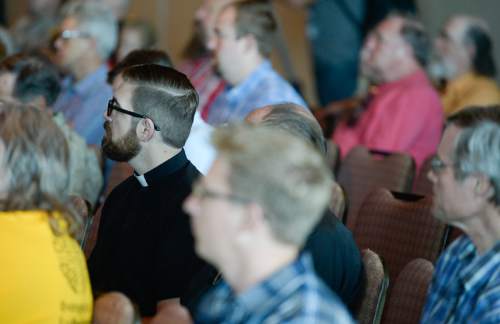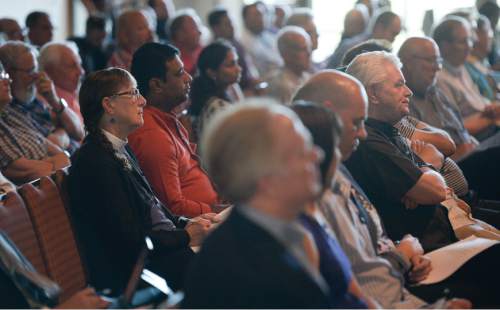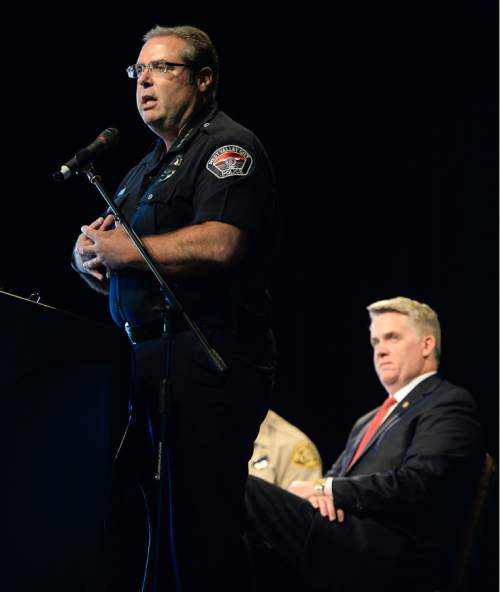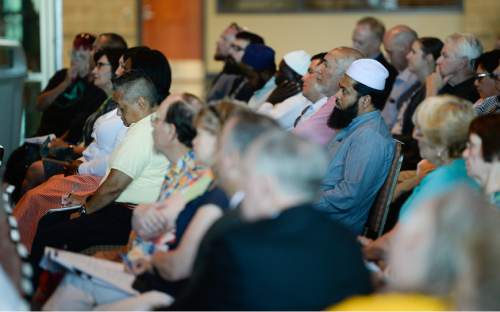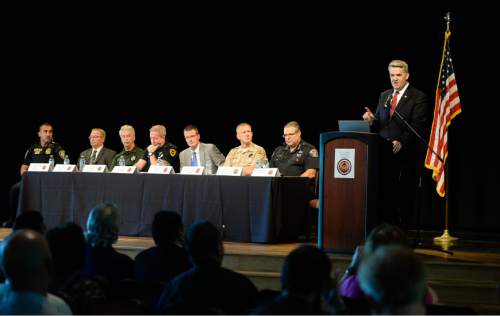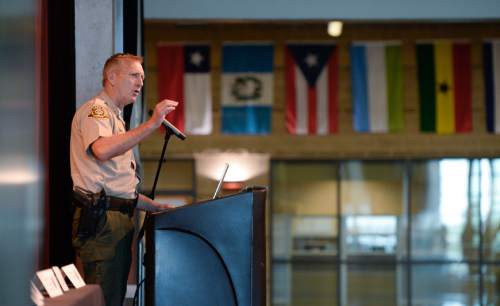This is an archived article that was published on sltrib.com in 2016, and information in the article may be outdated. It is provided only for personal research purposes and may not be reprinted.
West Valley City • In the past decade, there have been dozens of attacks nationwide against places of worship and the faithful who gather in them, U.S. Attorney for Utah John Huber told a group of community members and faith leaders Wednesday.
"Your doors are open to all comers," Huber said. "And yet, we're faced with the reality of violence in our society."
He cited as examples the massacre of nine attendees at a Bible study at the Emanuel African Methodist Episcopal Church in Charleston, S.C., last year; the slaying of three people in 2014 at the Jewish Community Center of Greater Kansas City and Village Shalom, a Jewish retirement community, in Overland Park, Kan.; and the fatal shooting in 2012 of six members of the Sikh faith at an Oak Creek, Wis., temple. Authorities have said the lone gunman in each of those cases was a white supremacist.
Huber made his comments Wednesday at a law-enforcement symposium addressing the security of faith-related facilities and those who assemble at them.
The interdenominational event, held at the Utah Cultural Celebration Center in West Valley City, drew about 100 people. Giving safety advice were representatives from the West Valley City Police Department, Salt Lake County Sheriff's Office, Unified Police Department, Salt Lake City Police Department, the FBI and the U.S. Department of Homeland Security.
The speakers urged community members to work with each other and develop relationships with law-enforcement agencies to help Utah remain a place where everyone can worship freely. In addition, they recommended taking steps to prevent attacks and to be prepared in case violence does occur.
West Valley City police Chief Lee Russo said a greater sense of awareness — including watching for red flags, such as threats in person or on the internet — and then taking action can stop violence before it occurs.
Eric Barnhart, the FBI special agent in charge for Utah, Idaho and Montana, agreed that being informed about potential threats can reduce violence. Another violence-prevention strategy is to get to know one another, he said.
"It's hard to hate up close," Barnhart said.
Officer Jim Bartlett, training coordinator at the Salt Lake County Sheriff's Office, recommended training in the avoid-deny-defend method (a modification of run, hide, fight) in the event a shooter enters a place of worship.
People should learn about the building where they work or visit so they can move rapidly away and go to a place where they can deny access to a shooter, such as a room with a door that locks, Bartlett said.
"Hiding under your desk or pew is not effective," he said.
Once inside, they should turn off the lights and silence their phones, Bartlett said. If confronted by an armed attacker, he said, people should fight back in unison.
He stressed that people have the right to defend themselves and should be as ruthless as they can.
"The ultimate goal is survival," Bartlett said.
Two Homeland Security representatives — Ralph Ley, a security adviser, and Inspector Devin Cummins of the Federal Protective Service — suggested putting decorative rocks or some other kind of barrier outside to keep vehicles from driving inside the building; training faith leaders on how to deal with "obviously" mentally ill people; using the expertise of parishioners who are law-enforcement officers; creating triage teams of doctors, nurses and other medical professionals in the congregation; and equipping ushers with walkie-talkies to help with communication in an emergency.
Abdul Afridi, trustee of the Islamic Society of Greater Salt Lake, said the event was helpful. His mosque, Khadeeja Islamic Center in West Valley City, is "very safe, but at the same time, you never know," he said.
"I'm going to follow up on a lot of things they said," Afridi said.
Huber said Wednesday's event was part of a Department of Justice effort, prompted by the South Carolina church shooting, to address discrimination and violence that target people based on how they worship and what they look like.
Twitter: @PamelaMansonSLC


